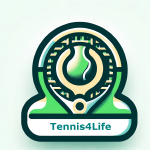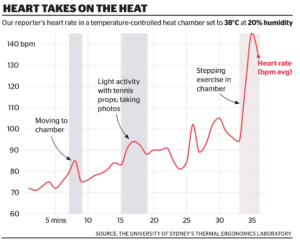Medvedev: Mind over Matter
Russian Daniil Medvedev recovered from two sets down to outlast Zverev, 5-7 3-6 7-6 7-5 6-3 in a gruelling semi-final and join Sinner in Sunday’s final.
“I was a little bit lost,” Medvedev admitted to Jim Courier when they were finally done, “but during the third set I started saying to myself that if I lose this match, I just want to be proud of myself. I want to fight until the end, fight for every point, and if I lose, I lose. And I managed to win, so I’m very proud.”
Medvedev has been sweating it out there for more than 20 hours, lost eight sets and twice recovered from two sets down. No-one has done that at the Australian Open since Pete Sampras in 1995. Small wonder Medvedev looked bedraggled when he was done. Then again, he always looks that way.
Quirky as ever, but less irascible, Medvedev at last has won fans and favour in this tournament. It’s been by design. He said he had decided between seasons to make a concerted effort to avoid aggravation – from opponents and crowds – and channel all his powers into his tennis.
“I want to play tennis. I want to be proud of myself. I want to fight. So could this help me win all of these matches? Possibly, yes. But I also don’t want to say yes one month ago I decided this and then suddenly I’m winning all these matches. Life is not that easy.
The first set could have been a chapter from Sun Tzu’s The Art Of War. Having played 18 times previously, it was as though they knew each other’s game so well that neither could surprise each other strategically. It made for an intriguing deadlock.
Medvedev used his patent return-of-serve tactic, standing so far behind the baseline that he was not so much receiving as fetching. In a manner, it worked.
In the second set, Zverev, though an inconsistent net player, decided to exploit all the space Medvedev was giving him by advancing on the net more often. It worked; two more breaks sped him to a 2-0 lead. Ordinarily, you might have expected Medvedev to have a Plan B up his own sleeve. Perhaps he did, but he was serving too poorly for it to matter. In the first two sets, Zverev broke him five times.
Back against the wall, Medvedev moved up the court, trying to crowd Zverev’s serve, doubling his few net approaches and retrieving spectacularly several times. It worked. At these closer quarters, Medvedev’s smarts told, though Zverev stayed with him to the tie-breaker.
Bit by bit, this grew into a saga. In the fourth set, Medvedev fashioned one break point with a perfect stop volley, another two points later with a pinpoint lob. Either would have led to him serving out the set.
But Zverev saved both with big serves, and then Medvedev appeared to have self-immolated when a double fault in the tie-breaker delivered Zverev’s seeming victory on a platter. But he didn’t take it, and in a cruel twist, Medvedev horribly framed a return of serve, only for it to plop over the net to send the match into a fifth set.
Five games into the fifth set, the match reached its last pass when a tiring Zverev netted a volley to fall two break points down. Sorely knowing the implications, the German belted his racquet into the offending net. Duly, he lost the game, and with it the last of his earlier momentum, and Medvedev won the mental game! Extraordinarily, having lost his serve five times in the first two sets, he was not broken again for the match.
“I would say this court is not my best court in terms of my performance and my actual self-esteem,” he said to Courier. “That’s why many times I had to dig deep during this tournament. So I’m gonna be the happiest man on the planet (if I win). But for this I need to play pretty well and win three sets on Sunday.”
Source: SMH








